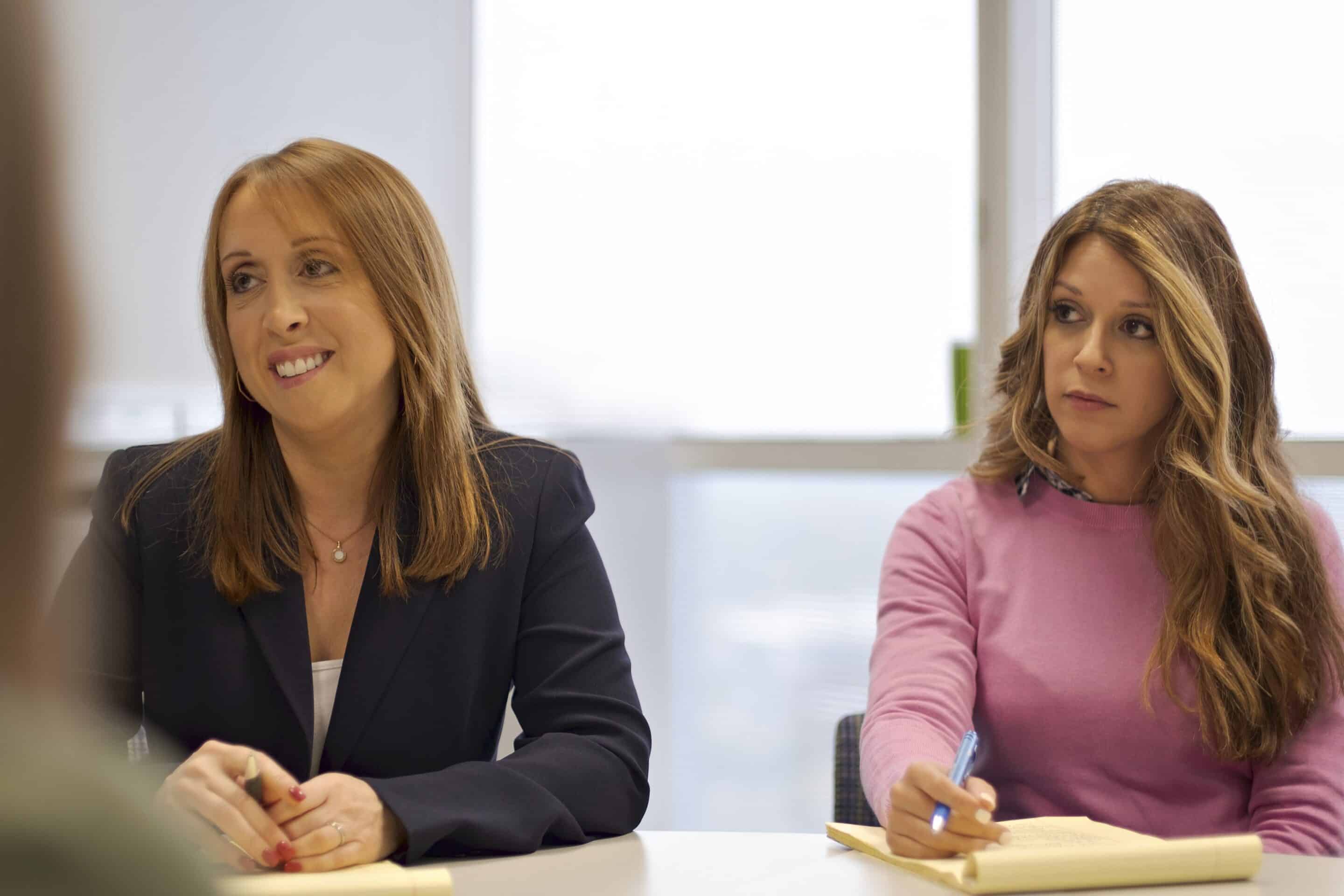Julie Kaplow, on the left, serves as the Director of the Trauma and Grief Center in Houston, Texas, will be launching the Handle with Care program for children who have witnessed a death.
In August we are focusing on “Back to School” at Evermore. We are giving focus to siblings who have suffered the death of a brother or sister. Returning to school without their siblings can be painful reminder. Being with caring adults and peers who share their experience is extremely important. Bereaved parents are often so devastated by the death of their child, they can’t be there for their surviving children in the way they want to and need to be.
The research makes it clear: For children, bereavement is one of the top reasons they are clinically referred. It’s among the “most distressing life events” for children and adults. What’s more, children who are mourning the death of a family member or friend have a higher risk for depression, substance abuse and other mental or behavioral health problems later in life.
Researcher Julie Kaplow, along with other experts, spell out these facts in a 2018 report that considers a tool used to assess bereavement in youth. The death of a parent, sibling or other relative or friend is a setback for any child, but some children develop unhealthy strategies to cope with the loss. There aren’t enough tools, especially for youth, that clinicians and counselors can use to evaluate whether a child could use extra support.
“We need assessment tools that tell us that this kid is not grieving in a way that’s healthy and we need to find some help,” said Kaplow, considered one of the nation’s top experts and thought leaders on grief and children.
In her many jobs, Kaplow’s work to develop those assessments is part of a multi-pronged approach that she and other researchers are tackling to support traumatized and bereaved children.
Kaplow is director of Texas Children’s Hospital’s Trauma and Grief Center, a Substance Abuse and Mental Health Services Administration-funded center that’s part of the National Child Traumatic Stress Network. The network, which includes 100 sites across the country, aims to raise the standard of care and bolster access to services for traumatized children and their families. The center at Texas Children’s is the only one to focus specifically on grief and bereavement.
Kaplow also serves as chief of psychology at the Houston hospital where she oversees 60 clinical psychologists. And, she is vice chairman for behavioral health at Baylor College of Medicine where she supervises behavioral health initiatives.
Healthy, unhealthy coping
Death is hardly a new topic, but grief and how we cope with it is a newer field of research, especially as it pertains to bereaved children.
“It’s controversial to talk about grief as a psychological problem given that bereavement is a natural part of life,” Kaplow said. “We know that everyone will have to experience a death at some point. We don’t want to pathologize normal grieving. I think there’s been such a push in that direction that it’s been at the expense of recognizing that there are some kids who really do get stuck and who really do need an additional level of support. I think that is what’s hindered the field.”
There are plenty of factors that can help to determine how a child will cope with a death over time, Kaplow said.
“What we know is if children are brought up in a healthy, happy environment, and if somebody dies, those kids, most of the time, will end up still continuing to lead happy, healthy lives,” she said.
“Kids who already bring with them other adverse experiences or a lack of parental support, even before the death, can have more trouble. So can children whose loved one died by homicide or suicide or who are living in poverty or in neighborhoods where violence is the norm,” Kaplow said.
“Maladaptive grieving can manifest in a number of different ways, and that depends on the developmental stage of the child,” she said.
A younger child may exhibit more clinginess, separation anxiety, a new onset of fears or developmental delays. A teenager might get involved in more risk-taking behaviors or even consider suicide. “And that can be either wanting to reunite with the person who died, if that’s part of their belief system, … or just not caring about life anymore,” Kaplow said.
Better treatments
To help those kids, Kaplow and her colleagues have developed evidence-based treatments that are designed to support traumatized or grieving children.
Trauma and Grief Component Therapy can be tailored to an individual child’s specific needs. A child mourning a loved one will benefit from the modules designed for grieving kids. Another child, who has been abused or witnessed violence, but hasn’t experienced a death, can benefit from the trauma modules.

The Trauma and Grief Center’s goal is to raise awareness about the adaptive side of grief, while also helping to identify bereaved youth who may need a higher level of support.
Multidimensional Grief Therapy is for kids who have experienced a death and are struggling. “It’s designed to address the different bereavement-related challenges kids may have,” she said.
Now, Kaplow and her colleagues are training others to provide these therapies to the kids who need them.
Targeting schools
There is much more work to do, of course, to help communities and clinicians assist kids who are mourning. And schools, said Kaplow, where children spend so much of their time, are an obvious place to start.
In the next six months, Kaplow plans to launch the Handle with Care program in Houston. Already in West Virginia and San Antonio, the program provides a way for police to alert school principals when a child has witnessed a death. From there, the child’s teacher can monitor them for post traumatic stress disorder and refer them to the school counselor, if needed.
Another major initiative is to ensure that school-based clinicians and teachers are trained to identify PTSD symptoms and children who are not coping well with their grief.
“Bereavement has been one of those sleeper traumas that not a lot of schools have paid close attention to,” Kaplow said. “What we’re finding is that bereavement is the №1 predictor of school failure above and beyond any other form of trauma and that includes sexual abuse, physical abuse and witnessing domestic violence.”
“Knowing bereavement is the most prevalent form of trauma, we definitely need to be helping teachers to ask questions and be more direct about inquiring about a recent loss,” she said. “We know that it’s uncomfortable for people. We don’t want to bring it up. But we also know it’s never harmful to inquire about how a child is coping after a death.”

